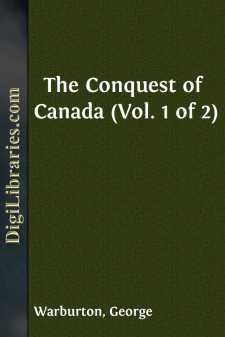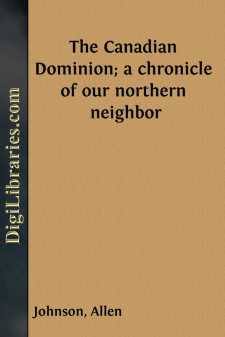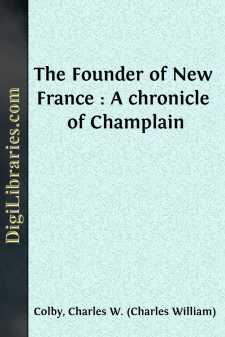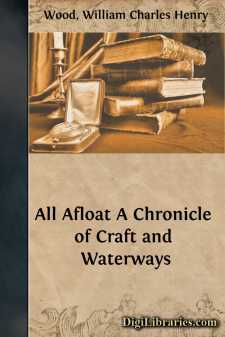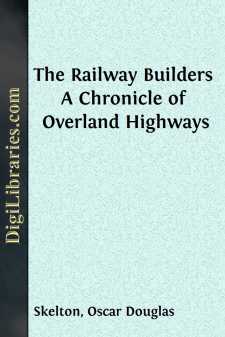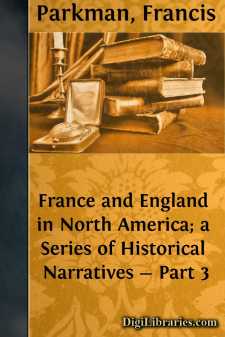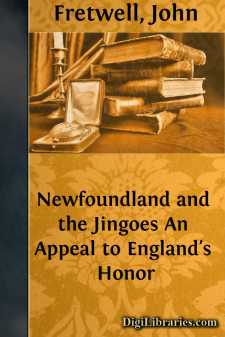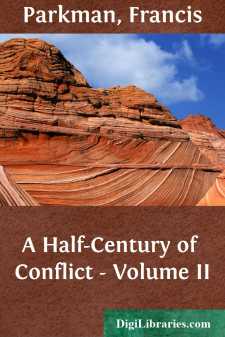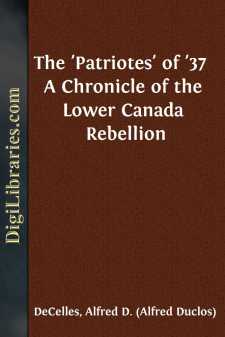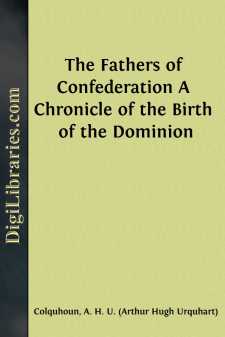History
- Africa 30
- Americas (North Central South West Indies) 50
- Ancient 68
- Asia 58
- Australia & New Zealand 8
- Canada
- Caribbean & West Indies 1
- Civilization 20
- Eastern Europe 12
- Europe 310
- Expeditions & Discoveries 60
- General 77
- Historical Geography 1
- Jewish 9
- Latin America 3
- Medieval 8
- Middle East 13
- Military 248
- Revolutionary 8
- Study & Teaching 5
- United States 353
- Western Europe 56
- World 13
Canada Books
Sort by:
by:
George Warburton
INTRODUCTION. England and France started in a fair race for the magnificent prize of supremacy in America. The advantages and difficulties of each were much alike, but the systems by which they improved those advantages and met those difficulties were essentially different. New France was colonized by a government, New England by a people. In Canada the men of intellect, influence, and wealth were only...
more...
by:
Allen Johnson
CHAPTER I. THE FIRST FIFTY YEARS Scarcely more than half a century has passed since the Dominion of Canada, in its present form, came into existence. But thrice that period has elapsed since the fateful day when Montcalm and Wolfe laid down their lives in battle on the Plains of Abraham, and the lands which now comprise the Dominion finally passed from French hands and came under British rule. The...
more...
CHAPTER I. CHAMPLAIN'S EARLY YEARS Were there a 'Who's Who in History' its chronicle of Champlain's life and deeds would run as follows: Champlain, Samuel de. Explorer, geographer, and colonizer. Born in 1567 at Brouage, a village on the Bay of Biscay. Belonged by parentage to the lesser gentry of Saintonge. In boyhood became imbued with a love of the sea, but also served as a...
more...
A LAND OF WATERWAYS Canada is the child of the sea. Her infancy was cradled by her waterways; and the life-blood of her youth was drawn from oceans, lakes, and rivers. No other land of equal area has ever been so intimately bound up with the changing fortunes of all its different waters, coast and inland, salt and fresh. The St Lawrence basin by itself is a thing to marvel at, for its mere stupendous...
more...
CHAPTER I THE COMING OF THE RAILWAY The Coming of the Railway—The Iron Road—The New Power—Engine and Rail—The Work of the Railway On the morning of October 6, 1829, there began at Rainhill, in England, a contest without parallel in either sport or industry. There were four entries: Braithwaite and Ericsson's Novelty.Timothy Hackworth's Sans-pareil.Stephenson and Booth's...
more...
by:
Francis Parkman
PREFACE. The discovery of the "Great West," or the valleys of the Mississippi and the Lakes, is a portion of our history hitherto very obscure. Those magnificent regions were revealed to the world through a series of daring enterprises, of which the motives and even the incidents have been but partially and superficially known. The chief actor in them wrote much, but printed nothing; and the...
more...
by:
John Fretwell
"To be taken into the American Union is to be adopted into a partnership. To belong as a Crown Colony to the British Empire, as things stand, is no partnership at all. "It is to belong to a power which sacrifices, as it has always sacrificed, the interest of its dependencies to its own. The blood runs freely through every vein and artery of the American body corporate. Every single citizen...
more...
by:
Francis Parkman
The occupation by France of the lower Mississippi gave a strong impulse to the exploration of the West, by supplying a base for discovery, stimulating enterprise by the longing to find gold mines, open trade with New Mexico, and get a fast hold on the countries beyond the Mississippi in anticipation of Spain; and to these motives was soon added the hope of finding an overland way to the Pacific. It was...
more...
CANADIANS, OLD AND NEW The conquest of Canada by British arms in the Seven Years' War gave rise to a situation in the colony which was fraught with tragic possibilities. It placed the French inhabitants under the sway of an alien race—a race of another language, of another religion, of other laws, and which differed from them profoundly in temperament and political outlook. Elsewhere—in...
more...
THE DAWN OF THE MOVEMENT The sources of the Canadian Dominion must be sought in the period immediately following the American Revolution. In 1783 the Treaty of Paris granted independence to the Thirteen Colonies. Their vast territories, rich resources, and hardy population were lost to the British crown. From the ruins of the Empire, so it seemed for the moment, the young Republic rose. The issue of...
more...


